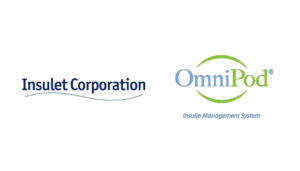 Insulet’s (NSDQ:PODD) drug-delivery business will be a long-term growth driver for the company by as much as 20% a year for the next few years, according to Leerink Partners analysts.
Insulet’s (NSDQ:PODD) drug-delivery business will be a long-term growth driver for the company by as much as 20% a year for the next few years, according to Leerink Partners analysts.
Billerica, Mass.-based Insulet generates 86% of its revenue from its OmniPod insulin delivery device, according to Leerink. The OmniPod technology could be easily adapted to other drugs, according to the investment bank, which cited Insulet’s partnership with Amgen (NSDQ:AMGN) as a foundation for other wearable drug-delivery products.
“There are a significant number of injectable drugs that are nearing patent expiration over the next few years that could foreseeably benefit from a differentiated drug delivery system,” according to the report. “In addition to features inspired by the Neulasta agreement, we have identified complicated dosing schedules and poor drug adherence as potential attributes that could benefit from a wearable delivery device.”
Leerink suggested Abilify, Cubicin, Forteo, Xolair, Gardasil and Humira as likely pharmaceutical candidates for Insulet to incorporate into its drug-delivery business. These 6 drugs represent a peak sales opportunity of $1.5 billion, they wrote.
The total enterprise value of OmniPod and Insulet’s drug-delivery businesses is $3.3 billion, Leerink estimated.
Insulet has 6 commercial agreements with companies to integrate pharmaceuticals into a wearable device, according to Leerink. Three of the agreements are with major pharmaceutical companies with drugs that are already on the market; the other 3 are for drugs in early development.
“Over time, we expect further clarity on each of these 6 agreements as either the drug manufacturer approaches commercialization for already-marketed drugs and/or the earlier-stage drugs enter clinical trials,” Leerink reported.
The report explored the possible impact of using delivery devices for antibiotics, hormone treatment, biologics, and antipsychotics. In all cases, they wrote, a wearable device would add convenience, increase compliance, and enable better patient management.
Leerink warned that its evaluation could be wrong if Insulet fails to bring successful drug delivery partnerships to commercialization among other unpredictable factors, like competition.
Insulet’s stock was trading at $40.10 per share in mid-morning trading activity, down 2.05%.

